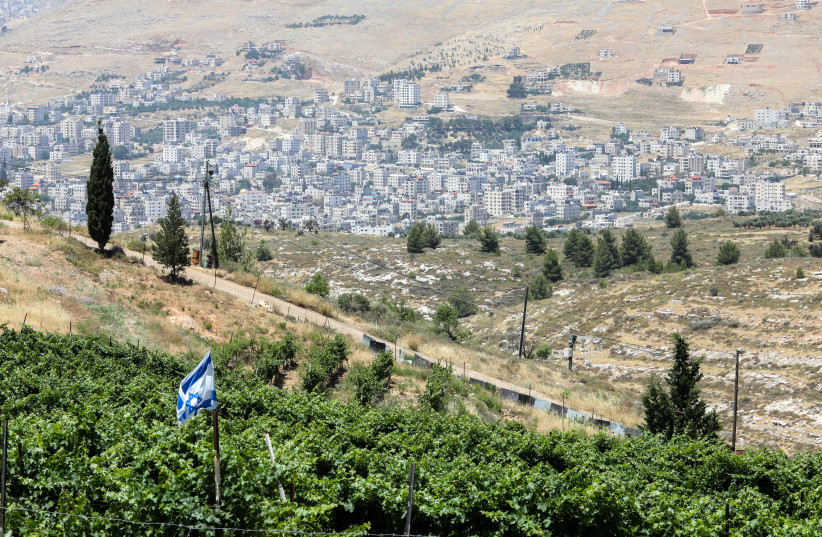Ten years ago, we sat around our dining room table in Boca Raton, Florida, while we aimlessly tried to figure out where we wanted to live when we moved to Israel in a few months’ time.
When considering where to move, we considered several factors, including commuting time to Jerusalem, the makeup of the community members, and, most importantly, the quality of the schools in the area.
Like many prospective immigrants to Israel, we wanted to live within walking distance of both the Western Wall and the Mediterranean beaches, while not paying more than a few hundred thousand dollars for a five- to 10-room detached home.
We were just as unrealistic about real estate prices as anyone else, and reality hit quickly. On a pilot trip to Israel before moving here, we quickly realized that our budget and preconceived notions of housing prices had never met. We triaged our priorities and crossed off the impossible options.
We recognized that living in a city with a large English-speaking population, a house big enough to comfortably fit eight people, and within a manageable commuting time to Jerusalem wasn’t going to fit our budget.

Unwilling to give up on the factors that were important to us, we began looking out of the box, and our search took us to a wonderful suburban community called Mitzpe Yeriho. This quiet bedroom community had excellent schools, was only 20 minutes from Jerusalem, and had stunning views we had only seen in movies and museum paintings. The icing on the cake was a beautiful large home for sale that fit perfectly into our budget.
At the time – unlike today – there weren’t many English speakers living in the town, but the benefits Mitzpe Yeriho boasted far outweighed the lack of people who spoke English and understood American culture.
One factor we weren’t looking for, nor did we even consider, was Mitzpe Yeriho's location over the Green Line. It was considered a settlement in the “West Bank” and outside of the mainstream “settlement blocs.”
We researched whether it was safe to live there and saw there had never been a terrorist attack in the town, it was located on the main Jerusalem-Dead Sea highway, and wasn’t considered a dangerous area. I had never even thought that in moving to Mitzpe Yeriho we’d be called settlers, and with it, people would assume I maintained an entire ideology I hadn’t ever studied.
Many people mistakenly think that settlements were built, and settlers moved to their towns to impede a two-state solution to the Israeli-Palestinian conflict and to prevent the founding of a Palestinian state. This theory is built by the projections of Palestinian advocates who assume that everyone thinks like them and worries about Palestinian statehood.
The West Bank doesn't impede a Palestinian state
While most settlers oppose a Palestinian state, it isn’t a major issue in their lives, and it certainly wasn’t a factor in their decision to live in a Jewish town in the West Bank . Almost every settler – and most Israelis – knows there will never be a Palestinian state not because of settlers but because Palestinians never miss an opportunity to miss an opportunity.
Palestinians have turned down a state since 1947, and their refusal to compromise on land, right of return [sic], and Jerusalem will continue to ensure they never have their own state. Settler actions have little to do with their constant “own goals.”
Like so many fellow “settlers,” I didn’t move to a Jewish town in Judea and Samaria (the biblical name for the region commonly called the West Bank) for ideological reasons. I moved to this region for its beauty, its warm sense of community, and its affordability.
There wasn’t, hasn’t, and never will be a Palestinian moved or displaced to make room for our town’s expansion and development. In fact, archaeological records show no human beings ever lived in the area of our town until 1977 when our founders pitched the tents that started Mitzpe Yeriho.
While it is true that UN Resolution 181, also known as the 1947 Palestinian Partition Plan, designated the West Bank for an independent Arab state, that region is the historic heartland of the Jewish people’s ancestral homeland. Jews have lived continuously in Judea and Samaria for millennia.
To suggest, especially after the Arabs rejected the UN offer of a state, that Jews should not live in or govern the West Bank borders on the absurd. The Nazis aimed to make Germany “Judenrein,” devoid of all Jews. To even contemplate Jews self-initiating making parts of their own homeland Judenrein defies reason.
In 1967, Israel fought the Six Day War and recaptured Judea and Samaria from the Jordanians. After 19 years of Palestinian rejection, Jordanian occupation, and a war to annihilate Israel, it made sense for Israel to reclaim the center of its homeland.
Jews began founding cities and towns in Judea and Samaria shortly after the war’s victory. Whether the United States considers Israel’s towns in the West Bank consistent with international law, as it did under the Trump administration, or inconsistent with international law, as it does under the Biden administration, Jews have a right to live, govern, and develop their towns in the West Bank.
I don’t live in the West Bank to stop the founding of a Palestinian state. I live in my settlement because it’s beautiful, affordable, and has the amenities my family and I need in our lives.
Since the West Bank is historically the land of the Jewish people, I don’t have to justify my presence on the land, nor do I have to concern myself with a Palestinian state its own people have shown no true desire to create. I live in Judea and Samaria for me, not to stop anyone else.
The writer is a certified interfaith hospice chaplain in Jerusalem and the mayor of Mitzpe Yeriho, Israel. She lives with her husband and six children.
